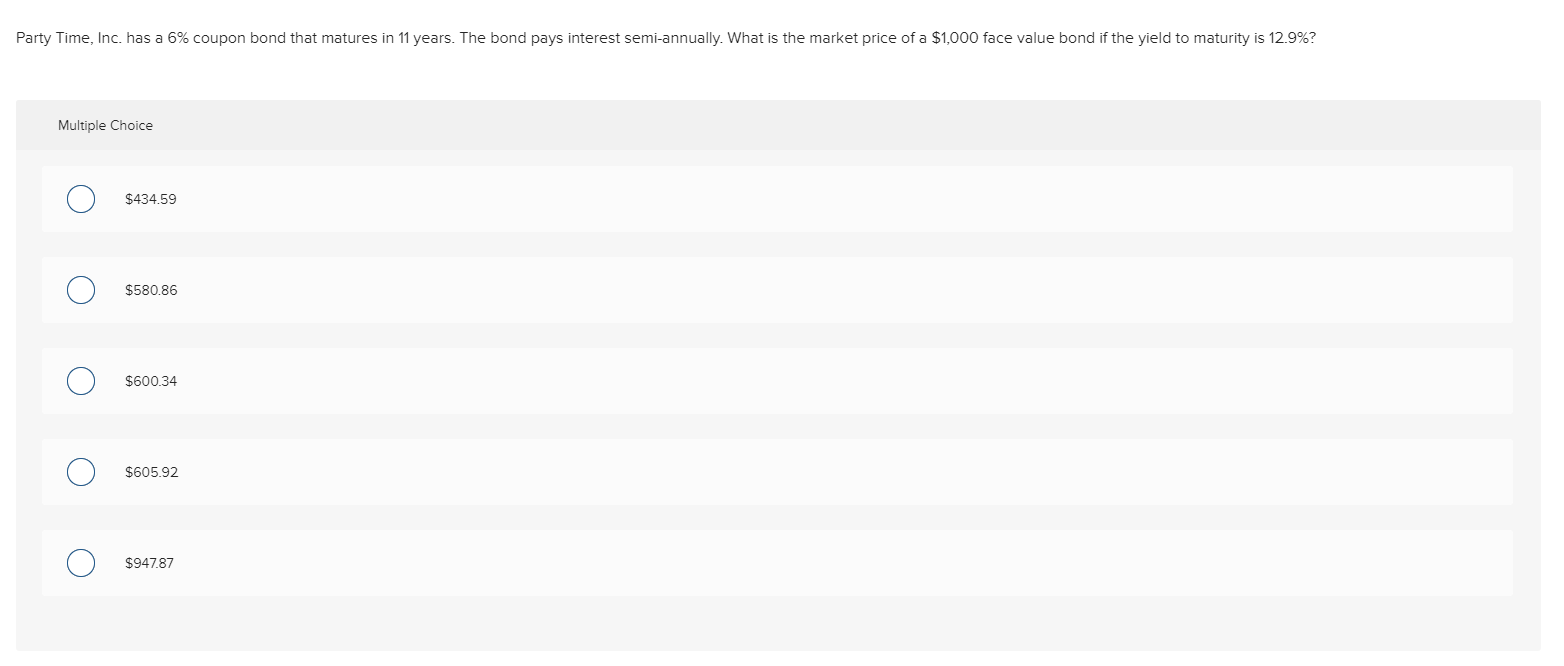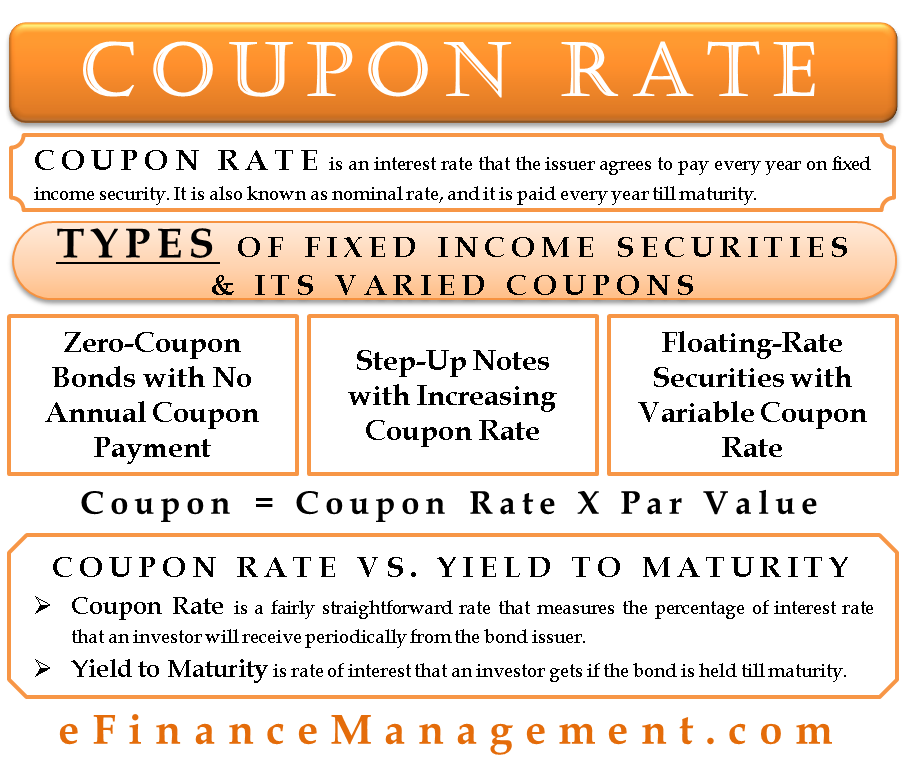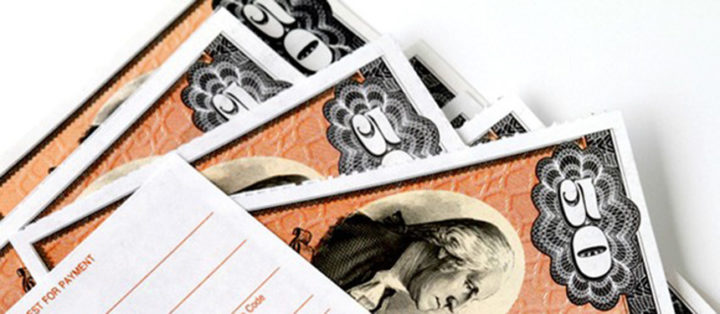39 coupon vs zero coupon bonds
Difference Between a Zero-Coupon CD & a Bond | Budgeting Money - The Nest Restrictions. One of the main differences between zero-coupon CDs and a bonds is in the way you buy and sell them. Although some financial services firms now offer CDs, traditionally you buy a CD directly from the issuing bank. If you sell the CD back to the bank before it matures, you will owe an interest penalty. About Discount Bonds versus Zero Coupon Bonds Zero Coupon bonds generally have a Maturity Date that is more than a year and a half out from the issue date. Unlike discount bonds, Zero Coupons do take compounding into account, and are generally issued with a semi-annual compounding yield; therefore, they have a Payment Frequency equal to the standard payment frequency of semi-annual.
14.3 Accounting for Zero-Coupon Bonds - Financial Accounting A zero-coupon bond is one that is popular because of its ease. The face value of a zero-coupon bond is paid to the investor after a specified period of time but no other cash payment is made. There is no stated cash interest. Money is received when the bond is issued and money is paid at the end of the term but no other payments are ever made.

Coupon vs zero coupon bonds
Should I Invest in Zero Coupon Bonds? | The Motley Fool So for instance, a 10-year zero coupon bond priced when prevailing yields were 3% would typically get auctioned for roughly $750 per $1,000 in face value. The $250 difference would essentially... Deep Discount bonds and Zero Coupon Bonds - The Fixed Income A cumulative product provides clarity of coupon paid. The taxation of the returns depends on the tax treatment prescribed at the time, varying from being taxed at maturity or on the accrued interest being taken up for tax in the year it is earned. Another avatar of the deep discount bond is the zero-coupon bond (ZCB). Zero-Coupon Bond - Definition, How It Works, Formula As a zero-coupon bond does not pay periodic coupons, the bond trades at a discount to its face value. To understand why, consider the time value of money. The time value of money is a concept that illustrates that money is worth more now than an identical sum in the future - an investor would prefer to receive $100 today than $100 in one year.
Coupon vs zero coupon bonds. Zero-coupon bond - Bogleheads Zero-coupon bonds or "zeros" result from the separation of coupons from the body of a security. Consequently, from a single coupon-paying bond, two bonds result: one which pays the coupons but returns no principal at maturity (an annuity), and one which pays no coupons but returns the par value at maturity (a zero-coupon bond). Zeroes sell ... What is the difference between a zero-coupon bond and a regular bond? The difference between a regular bond and a zero-coupon bond is the payment of interest, otherwise known as coupons. A regular bond pays interest to bondholders, while a zero-coupon bond does not... Zero Coupon Bond (Definition, Formula, Examples, Calculations) Zero-Coupon Bond Value = [$1000/ (1+0.08)^10] = $463.19 Thus the Present Value of Zero Coupon Bond with a Yield to maturity of 8% and maturing in 10 years is $463.19. The difference between the current price of the bond, i.e., $463.19, and its Face Value, i.e., $1000, is the amount of compound interest What is a Zero Coupon Bond? Who Should Invest? | Scripbox A coupon is an interest the bond issuer pays the bondholder. Coupon payments happen periodically from the time of issuance of the bond until its maturity. A zero coupon bond is a type of fixed income security that does not pay any interest to the bondholder. It is also known as a discount bond.
Deep Discount Bond or Zero Coupon Bond - CommerceAngadi.com That time the company issue a bond at a deep discount, which is without any interest and also called as Zero-coupon bond. It is called a Deep Discount bond or Zero Coupon Bond. The difference between the Maturity amount received and the purchase price is an Income to this type of Bondholder. A Bond is issued for ₹ 730 with a maturity amount ... Understanding Zero Coupon Bonds - Part One - The Balance Here are some general characteristics of zero coupon bonds: Issued at deep discount and redeemed at full face value Some issuers may call zeros before maturity You must pay tax on interest annually even though you don't receive it until maturity Zero coupon bonds are more volatile than regular bonds What is a Zero-Coupon Bond? - Realonomics and Justice Science Chemistry Mathematics FinanceFoodFAQHealthHistoryPoliticsTravelTechnology Random Article Home Finance What Zero Coupon Bond Finance What Zero ... Bond Economics: Primer: Par And Zero Coupon Yield Curves Primer: Par And Zero Coupon Yield Curves. Par and zero coupon curves are two common ways of specifying a yield curve. Par coupon yields are quite often encountered in economic analysis of bond yields, such as the Fed H.15 yield series. Zero coupon curves are a building block for interest rate pricers, but they are less commonly encountered away ...
The One-Minute Guide to Zero Coupon Bonds | FINRA.org Instead of getting interest payments, with a zero you buy the bond at a discount from the face value of the bond, and are paid the face amount when the bond matures. For example, you might pay $3,500 to purchase a 20-year zero-coupon bond with a face value of $10,000. After 20 years, the issuer of the bond pays you $10,000. Zero Coupon Bonds - Financial Edge Training Characteristics of Zero Coupon Bonds Returns for investors. Zero bonds trade at a discounted price, lower than the amount received at maturity. This difference between the traded price and redemption price is the return realized by investors over the bond's life. This amount is also known as the accreted interest. An example is a 10-year zero ... Zero Coupon Bond | Investor.gov Zero coupon bonds are bonds that do not pay interest during the life of the bonds. Instead, investors buy zero coupon bonds at a deep discount from their face value, which is the amount the investor will receive when the bond "matures" or comes due. What Is a Zero Coupon Yield Curve? (with picture) The zero coupon rate is the return, or yield, on a bond corresponding to a single cash payment at a particular time in the future. This would represent the return on an investment in a zero coupon bond with a particular time to maturity. The zero coupon yield curve shows in graphical form the rates of return on zero coupon bonds with different ...
Zero-Coupon Bond: Formula and Excel Calculator In contrast, for zero-coupon bonds, the difference between the face value and the bond's purchase price represents the bondholder's return. Due to the absence of coupon payments, zero-coupon bonds are purchased at steep discounts from their face value, as the next section will explain more in-depth. Zero-Coupon Bond - Bondholder Return
How Do Zero Coupon Bonds Work? - SmartAsset A zero coupon bond differs from regular bonds in that they do not pay income in the form of coupons. We explain how it works and where to invest in them. Menu burger Close thin Facebook Twitter Google plus Linked in Reddit Email arrow-right-sm arrow-right Loading Home Buying Calculators How Much House Can I Afford? Mortgage Calculator Rent vs Buy
Deep Discount Bonds Vs Zero Coupon Bonds : AsambleDiscount Get Deep Discount Bonds Vs Zero Coupon Bonds from this website and save money on your next purchase. They update the coupons regularly, so be sure to check back often for the latest deals.You may visit the link to get started and find the perfect coupon for you.
Advantages and Risks of Zero Coupon Treasury Bonds Zero-coupon bonds are also appealing for investors who wish to pass wealth on to their heirs but are concerned about income taxes or gift taxes. If a zero-coupon bond is purchased for $1,000 and...
Zero Vs Fixed Coupon Bond volatility | QuantNet Community Everywhere I look for this on the internet I read that Zero Coupon Bonds are more volatile than Fixed Coupon Bonds. The explanation for this seems to be that the Duration (both Macaulay and Modified) are larger the lower the size of the coupon is, and consequently a, let's say 10Y ZC Bond has a larger duration than a 10Y 5% Coupon Bond.
Zero-Coupon Bond - The Investors Book Definition: A zero-coupon bond, as the name suggests, it is a financial instrument which does not allow a regular interest payment to the investor.Moreover, it is a bond which is issued at a meagre market price (discounted price) in comparison to its face value. And it is redeemable on or after a specified maturity date at the par value itself.
Numeraire: Money market vs zero coupon bond - QuantNet Community Q2: Normalized zero-coupon bond pays $1 at its maturity. Let P (t,T) denote the price of a ZC bond at time t that matures at time T. By a basic no-arbitrage argument, P (t,T) is related to the money market account via P (t, T) = E_t^Q [1/M (t,T)].
What is the difference between a zero-coupon bond and a regular ... - Quora Simple, zero coupon bonds are sold at significantly lower prices or at deep discounts- say a bond with a face value of $1000 will sell for lower than its face value say $750. So at maturity while the investor would not receive any interest, he will receive the full face value of the bond. Profit=$1000-$750=$250 (Numbers are meant purely
Zero-Coupon Bond - Definition, How It Works, Formula As a zero-coupon bond does not pay periodic coupons, the bond trades at a discount to its face value. To understand why, consider the time value of money. The time value of money is a concept that illustrates that money is worth more now than an identical sum in the future - an investor would prefer to receive $100 today than $100 in one year.
Deep Discount bonds and Zero Coupon Bonds - The Fixed Income A cumulative product provides clarity of coupon paid. The taxation of the returns depends on the tax treatment prescribed at the time, varying from being taxed at maturity or on the accrued interest being taken up for tax in the year it is earned. Another avatar of the deep discount bond is the zero-coupon bond (ZCB).
Should I Invest in Zero Coupon Bonds? | The Motley Fool So for instance, a 10-year zero coupon bond priced when prevailing yields were 3% would typically get auctioned for roughly $750 per $1,000 in face value. The $250 difference would essentially...














Post a Comment for "39 coupon vs zero coupon bonds"